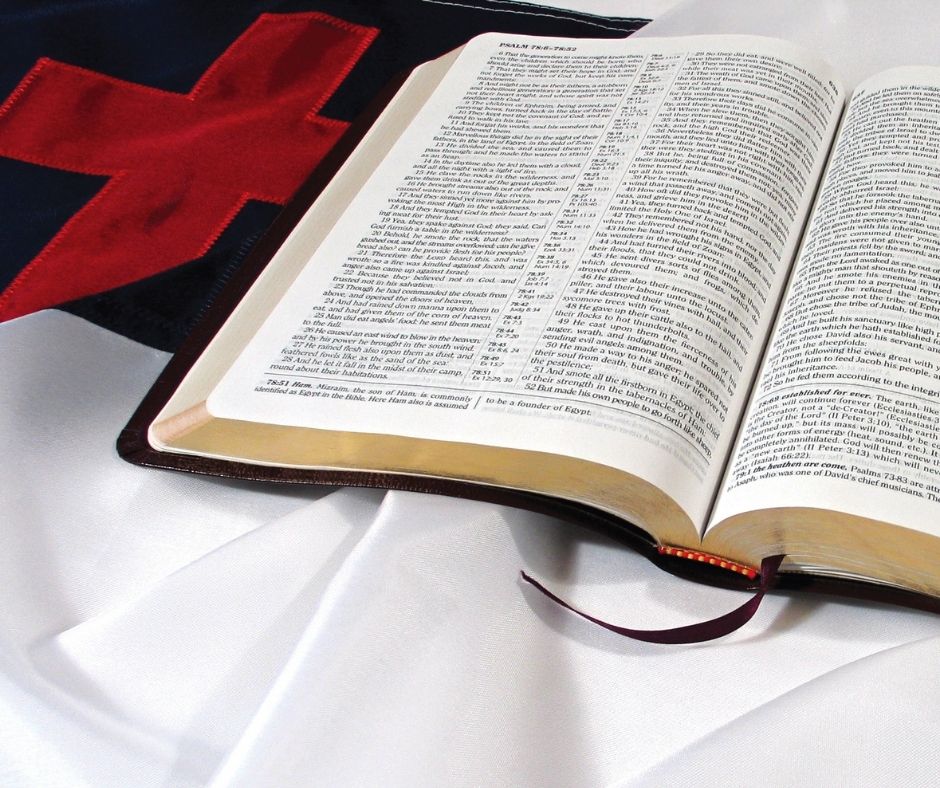On January 18, Liberty Counsel Founder and Chairman Mat Staver presented oral argument to the U.S. Supreme Court in Shurtleff v. City of Boston, arguing that the City of Boston violated the Constitution by censoring a private flag in a public forum open to “all applicants” merely because the application referred to it as a “Christian flag.” Liberty Counsel represents Boston resident Hal Shurtleff and his Christian civic organization, Camp Constitution.
Shurtleff and Camp Constitution first asked the city in 2017 for a permit to celebrate Constitution Day and to raise the Christian flag on one of Boston City Hall’s flagpoles to recognize the Christian community, including John Adams, John Quincy Adams, and Samuel Adams, all residents of Massachusetts.
After 12 years with 284 flag raising approvals, no denials and virtually no review, one word caught the attention of a Boston official – the word “Christian” on the application. The flag itself was not the problem. Had it been called anything but Christian, the same flag would have flown for an hour without incident.
The policy does not limit the flag poles to subject matters or speakers. All applicants are welcome — except religious viewpoints. In fact, the policy places religion in the same category as speech deemed inappropriate, offensive, supporting prejudice or discrimination. To justify its admitted viewpoint discrimination, the city raises one defense — that the public forum open to all applicants is government speech.
During the oral argument, the Supreme Court appeared to reject Boston’s argument that the “public forums” which the policy said was open to “all applicants” is government speech. The city’s attorney even admitted that if the High Court finds that the city created a public forum, then Boston has no defense.
The Supreme Court has already met and voted and will release its opinion by June 2022.
On January 14, after the nine justices had reviewed the briefs for Shurtleff v. City of Boston, the High Court announced that it will take up the case of Kennedy v. Bremerton School District, in which a high school football coach was fired for silently praying on the field after games. Liberty Counsel will file an amicus brief in this case and the High Court is expected to hear oral arguments sometime this spring. The school used similar arguments as Boston, stating that the coach’s kneeling after the game was government speech and the school could prohibit it under the Establishment Clause.
In 2008, Bremerton High School football coach Joe Kennedy made a promise to God that he would pray and give thanks after each game he coached, regardless of the outcome. Coach Kennedy would simply drop to one knee and “offer a silent or quiet prayer of thanksgiving for player safety, sportsmanship, and spirited competition.” He did this for years without any complaints and members of the community and players often joined him. Then in 2015, the school district ordered Kennedy to stop, stating his practice violated the Establishment Clause of the U.S. Constitution. When he refused, the district terminated him.
In 2019, The U.S. Supreme Court declined to review the case but four justices — Alito, Thomas, Gorsuch, and Kavanaugh — signaled that the Court would be open to hearing the case at a future time. They wrote, “The Ninth Circuit’s understanding of the free speech rights of public school teachers is troubling and may justify review in the future.”
Kennedy returned to the Supreme Court in September 2021 telling the justices that the Ninth Circuit’s ruling used “imagined Establishment Clause concerns to inflict real Free Exercise Clause damage.” The High Court took the case on January 14, 2022 and is expected to hear oral arguments later this year.
Liberty Counsel’s Founder and Chairman Mat Staver said, “The U.S. Supreme Court should protect religious viewpoint in the marketplace. Boston opened a forum for ‘all applicants’ and then discriminated against those with a Christian viewpoint. That precedent is dangerous and should be reversed. The precedent set by the Supreme Court could impact generations for decades.”
















